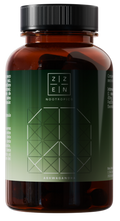Work-related anxiety has become a daily reality for thousands of people. Constant meetings, impossible deadlines, excessive workloads, and a toxic environment are just some of the factors that can trigger work-related anxiety. How can you recognize work-related anxiety early on? How can you combat it effectively, without resorting to artificial or temporary solutions?
In this article, we discuss the seven main symptoms of work-related anxiety, how they affect your health and productivity, and what you can do to address them in a mindful and natural way.
Table of contents
What is work-related anxiety?
Work-related anxiety is a form of chronic stress that arises when the demands of work exceed the personal resources available to cope with them. Unlike a one-off spike in stress, prolonged anxiety affects cognitive, emotional, and physical performance, leading to progressive exhaustion.
This situation can be exacerbated if symptoms of anxiety at work are not identified in time or if appropriate strategies are not implemented to reduce their impact.
7 main symptoms of work-related anxiety
1. Difficulty concentrating or making decisions
One of the first symptoms of work-related anxiety is the feeling of mental overload. Tasks that you used to complete with ease now become an uphill struggle. You find it difficult to prioritize, you get distracted easily, and you end up procrastinating more than you should.
What can you do?
Incorporate time management techniques such as the Pomodoro Technique into your daily routine, reduce multitasking and rely on concentration supplements like ZZEN Focus, formulated with L-Theanine, Rhodiola, and natural caffeine, it can help you maintain sustained concentration without causing nervousness.
2. Insomnia or poor sleep quality
Work-related anxiety often manifests itself at night in the form of insomnia or difficulty switching off mentally. You toss and turn in bed thinking about pending tasks or that email you didn't reply to.
What can you do?
Establish a screen-free nighttime routine at least one hour before bedtime. In addition, a natural aid such as sleep supplements such as ZZEN Sleep, with magnesium bisglycinate, L-tryptophan, and GABA, contributes to rest and muscle relaxation without side effects.
3. Muscle tension and recurring pain
Do you feel stiffness in your jaw, neck, or back at the end of the day? Anxiety manifests itself physically. The accumulation of cortisol (the stress hormone) causes muscle spasms, bruxism, and pain with no apparent medical cause.
What can you do?
Physical activity, yoga, or even a mindful break to stretch can make a difference. And if you're looking to strengthen your stress adaptation system, ashwagandha KSM-66®, present in ZZEN Calm, can help you naturally modulate your response to stress.
4. Constant mental fatigue
Feeling exhausted at the start of the day is a warning sign. Anxiety drains your energy and can lead to a feeling of burnout or emotional exhaustion, where even the smallest challenge feels overwhelming.
What can you do?
Incorporate real breaks, avoid overexposure to screens, and nourish the brain with adaptogens such as bacopa monnieri, included in ZZEN Focus, helps improve mental clarity and resistance to exhaustion.
5. Irritability or mood swings
Small setbacks at work can trigger disproportionate reactions when you are living under constant pressure. If you feel that anything can set you off, you may be dealing with work anxiety.
What can you do?
Practicing mindful breathing techniques or meditation can be very effective. In addition, L-Theanine , present in somenatural nootropics like those from ZZEN Labs, it promotes a state of calm without sedation, helping to regulate mood.
6. Feeling of threat or negative anticipation
Thinking about going to work makes you anxious, you wake up with a tight chest, or you check your boss's email with fear. This constant negative anticipation is one of the clearest signs of work-related anxiety.
What can you do?
Take emotional stock of what you can and cannot control in your work environment. If the situation becomes untenable, it is important to seek professional help.
7. Difficulty enjoying free time
Work anxiety doesn't disappear when you leave the office. If you find it difficult to relax on the weekend, feel guilty for not being “productive,” or can't mentally disconnect from work, it's time to take action.
What can you do?
Redefine your leisure time as an essential part of your performance. Activities such as aimless walking, painting, reading, or simply doing nothing are also productive if they help you recharge.
It is possible to combat work-related anxiety naturally
At ZZEN Labs, we believe in combining science, habit, and consistency as tools to restore balance in your daily life. Our nootropics are formulated to help you better manage stress, regain your mental energy, and boost your daily focus.
If you feel that your work-related anxiety is affecting your quality of life, start with small changes. And if you are looking for a natural ally, discover our natural supplement pack.
Conclusion
Recognizing the symptoms of work-related anxiety is the first step toward taking control. The second is to give yourself permission to take care of yourself, physically and mentally. Whether it's through changes in your routine, professional help, or natural support like what we offer at ZZEN Labs, remember that you are not alone.









Leave a comment
This site is protected by hCaptcha and the hCaptcha Privacy Policy and Terms of Service apply.